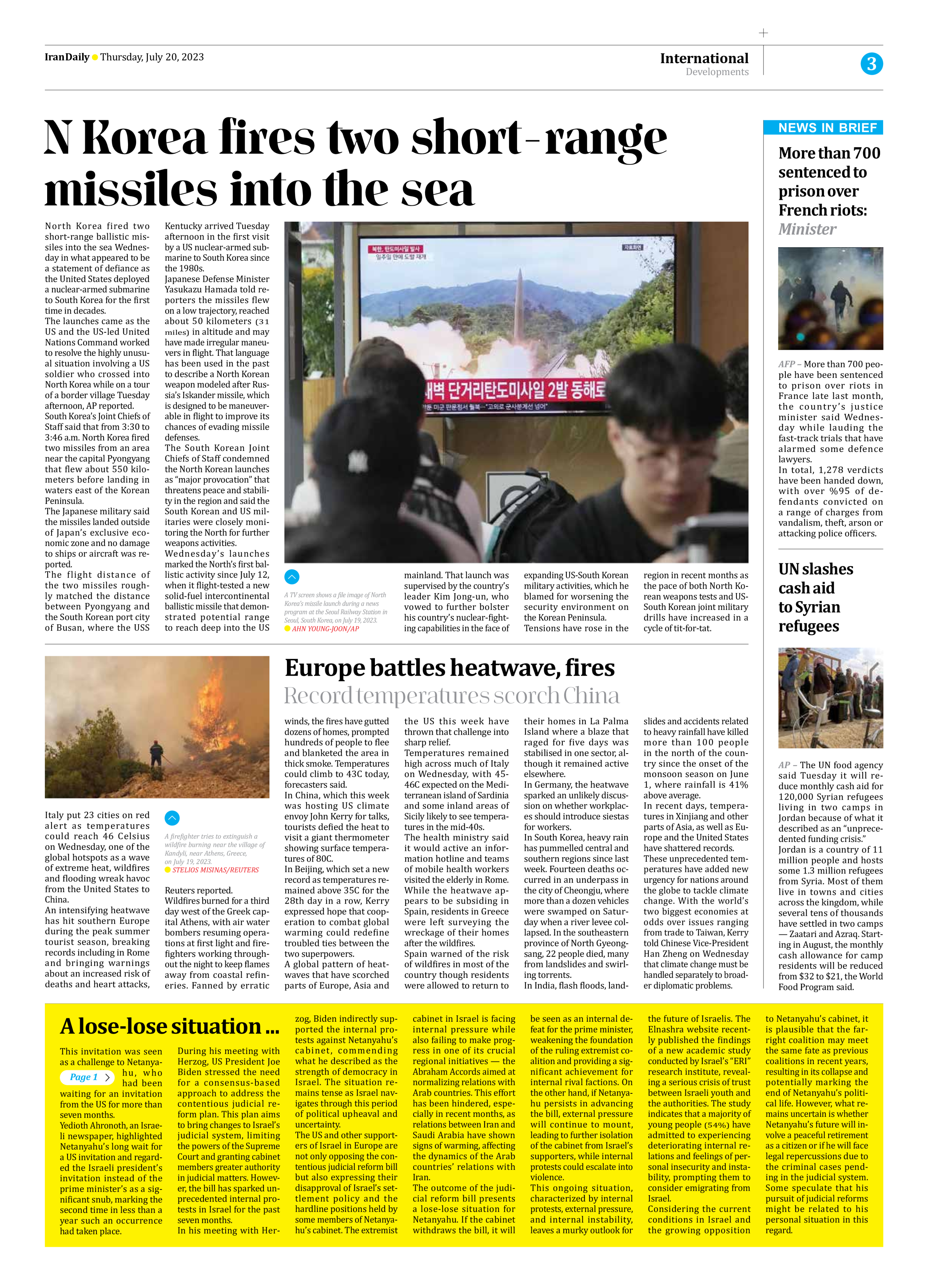
A lose-lose situation ...
Page 1
This invitation was seen as a challenge to Netanyahu, who had been waiting for an invitation from the US for more than seven months.
Yedioth Ahronoth, an Israeli newspaper, highlighted Netanyahu’s long wait for a US invitation and regarded the Israeli president’s invitation instead of the prime minister’s as a significant snub, marking the second time in less than a year such an occurrence had taken place.
During his meeting with Herzog, US President Joe Biden stressed the need for a consensus-based approach to address the contentious judicial reform plan. This plan aims to bring changes to Israel’s judicial system, limiting the powers of the Supreme Court and granting cabinet members greater authority in judicial matters. However, the bill has sparked unprecedented internal protests in Israel for the past seven months.
In his meeting with Herzog, Biden indirectly supported the internal protests against Netanyahu’s cabinet, commending what he described as the strength of democracy in Israel. The situation remains tense as Israel navigates through this period of political upheaval and uncertainty.
The US and other supporters of Israel in Europe are not only opposing the contentious judicial reform bill but also expressing their disapproval of Israel’s settlement policy and the hardline positions held by some members of Netanyahu’s cabinet. The extremist cabinet in Israel is facing internal pressure while also failing to make progress in one of its crucial regional initiatives — the Abraham Accords aimed at normalizing relations with Arab countries. This effort has been hindered, especially in recent months, as relations between Iran and Saudi Arabia have shown signs of warming, affecting the dynamics of the Arab countries’ relations with Iran.
The outcome of the judicial reform bill presents a lose-lose situation for Netanyahu. If the cabinet withdraws the bill, it will be seen as an internal defeat for the prime minister, weakening the foundation of the ruling extremist coalition and providing a significant achievement for internal rival factions. On the other hand, if Netanyahu persists in advancing the bill, external pressure will continue to mount, leading to further isolation of the cabinet from Israel’s supporters, while internal protests could escalate into violence.
This ongoing situation, characterized by internal protests, external pressure, and internal instability, leaves a murky outlook for the future of Israelis. The Elnashra website recently published the findings of a new academic study conducted by Israel’s “ERI” research institute, revealing a serious crisis of trust between Israeli youth and the authorities. The study indicates that a majority of young people (54%) have admitted to experiencing deteriorating internal relations and feelings of personal insecurity and instability, prompting them to consider emigrating from Israel.
Considering the current conditions in Israel and the growing opposition to Netanyahu’s cabinet, it is plausible that the far-right coalition may meet the same fate as previous coalitions in recent years, resulting in its collapse and potentially marking the end of Netanyahu’s political life. However, what remains uncertain is whether Netanyahu’s future will involve a peaceful retirement as a citizen or if he will face legal repercussions due to the criminal cases pending in the judicial system. Some speculate that his pursuit of judicial reforms might be related to his personal situation in this regard.







